WATCH: With four new orca calves born this year, the population along the B.C. coast is up. Despite the good news experts say the whales are still struggling due to pollution and warmer waters, so when a group had a chance to save a female beached on some rocks earlier this week, they sprung into action. Jayme Doll reports.
A dedicated team of people are receiving praise this morning after working for about eight hours to keep a beached orca alive.

The orca was first spotted on Wednesday, just after 8 a.m. in the northern Squally Channel near the village of Hartley Bay.
The female had breached herself trying to hunt seals on the rock and became stuck during the tide.
A group known as the Guardians from Hartley Bay, along with the group Whale Point and members of the World Wildlife Federation and the Gitga’at Nation were quickly on the scene.
WATCH: How a young orca became beached on the north coast, and what was done to save the whale. Linda Aylesworth reports.
“My first thought was ‘how are we going to get it out of there?'” added Fisher.
Hermann Meuter, who runs The Cetacean Lab and Whale Point, said they also contacted the Department of Fisheries and Oceans to check with them about approaching the whale and trying to help.
A few members of the group, including Meuter and Fisher, were then able to approach the whale.
“What we noticed right away is that the skin of the whale was already really dry, so with the advice from the DFO we had a lot of blankets and sheets and we started pouring salt water on the sheets that were covering the whale, just to keep the skin cool, to reduce the stress level for the whale,” said Meuter.
He did that for about three hours and then as more people came to help, they continued to pour water over the whale to prevent overheating. They could hear the orca crying but she remained calm. “By early afternoon, the tide started rising again, and by three o’clock the level of the water was touching the whale again,” said Meuter.
WATCH: Beached orca kept alive while anxious pod watches nearby.
By 3:30 p.m. she was floating again and it took her about 45 minutes more to negotiate the situation and maneuver herself back in the water. “She was incredibly patient in doing this,” said Meuter. “There was no rush, she was extremely calm, she was already calling out for her family.”
“It was a team effort, and fortunately on some level this transient orca understood that we were trying to help,” said Whale Point in a Facebook post.
When she swam away, there were a lot of cheers and yelling from the group that stayed all day to help.
The orca is about 11 years old and belongs to Transient Pod T69. She is known as T69E. When she was stranded, the four members of her pod stayed fairly close by, circling the rocks.
“They stuck it out there all day long,” says Fisher.
Another pod also came into the area and hung around for some time.
“When T69E finally got off the rocks, we had a hydrophone in the water and you could hear the calls of the whale that just got free and you could hear the family calling away in the distance,” said Meuter. “So there was instant communication, which is very important. She took a couple of shallow dives and then one big dive, so we are pretty sure she was reunited with her family quite quickly.”
“A giant thank you once again to this amazing community that comes together so quickly to protect what is sacred,” said Whale Point.
Dr. Martin Haulena, at the Vancouver Aquarium, said the orca would have been very sore after her ordeal and likely suffered some bruising. He said when orcas and whales become breached and lie with all their weight outside the water it can cause some tissue to die, so researchers will be keeping an eye on T69E for the next few days at least.
“It is no fun for a five-ton orca to be stranded on the rocks for that long, it was very stressful,” said Meuter.
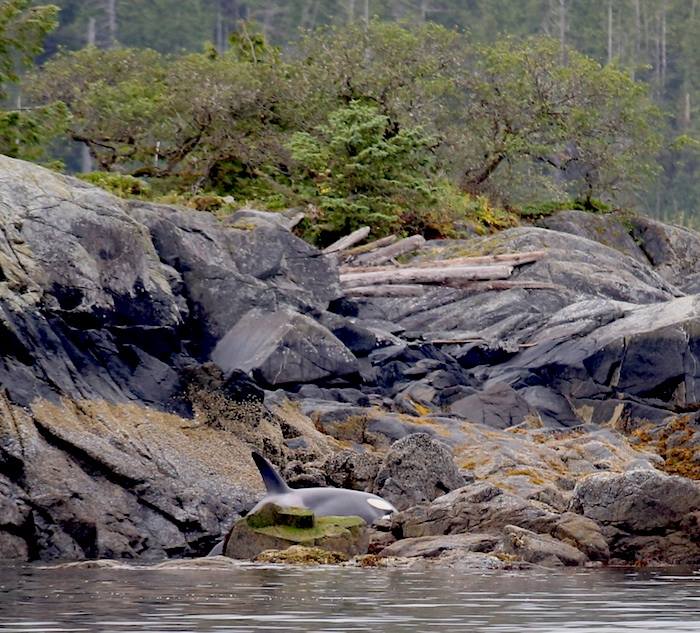


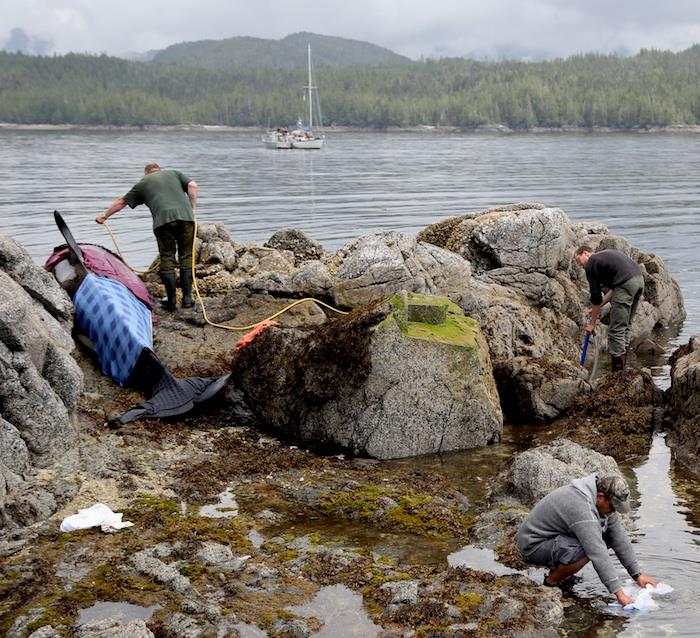
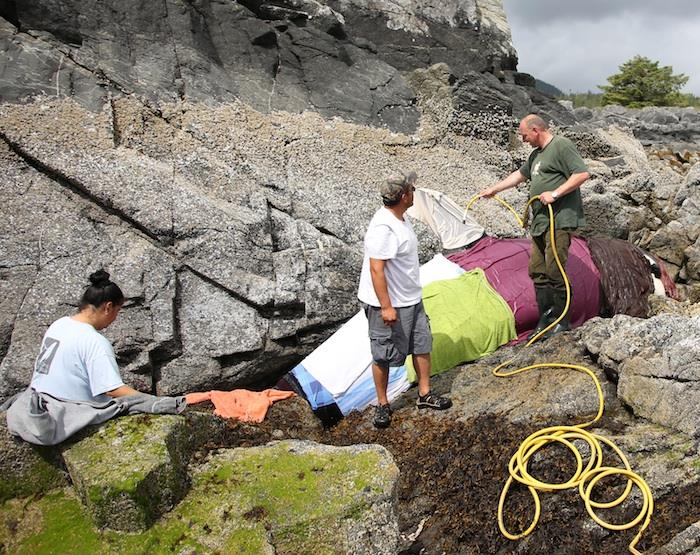
Photos of the whale, courtesy of George Fisher:




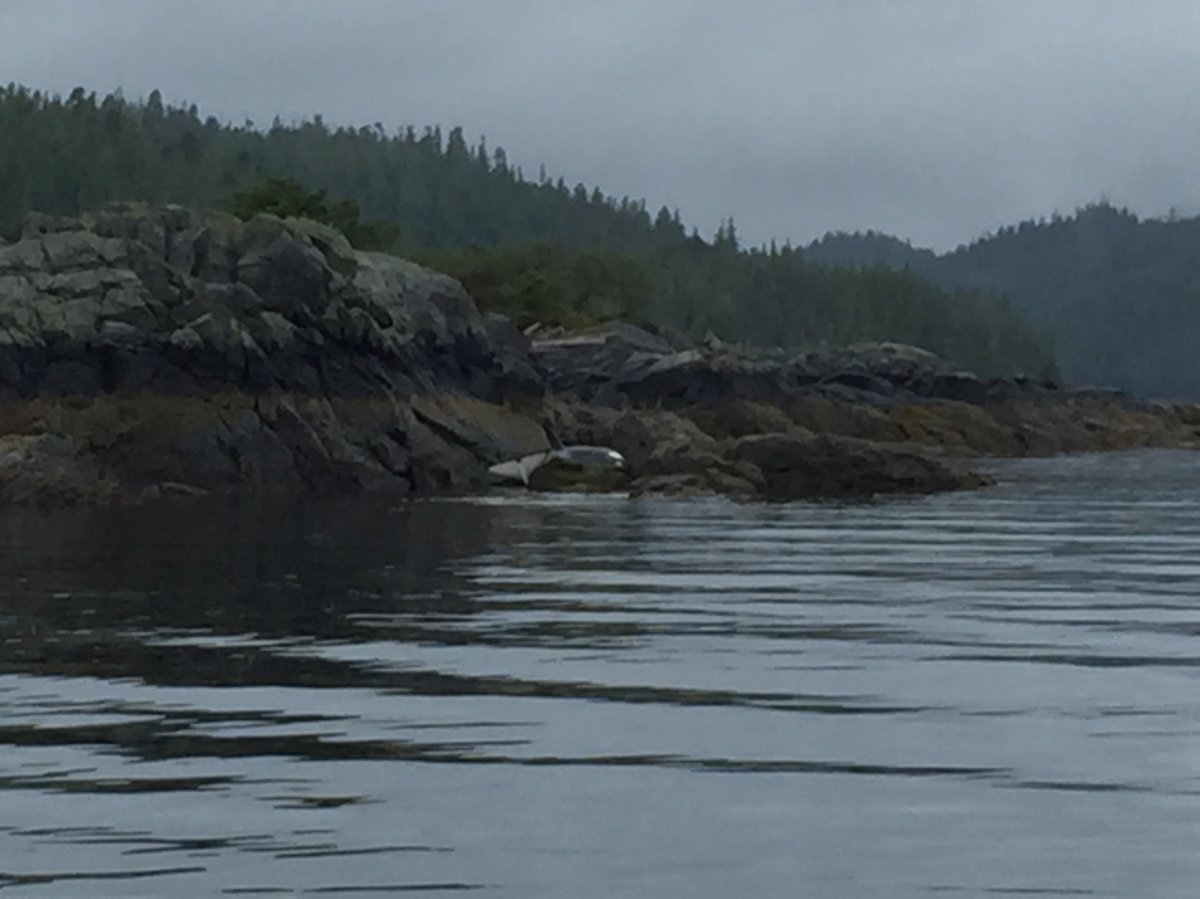

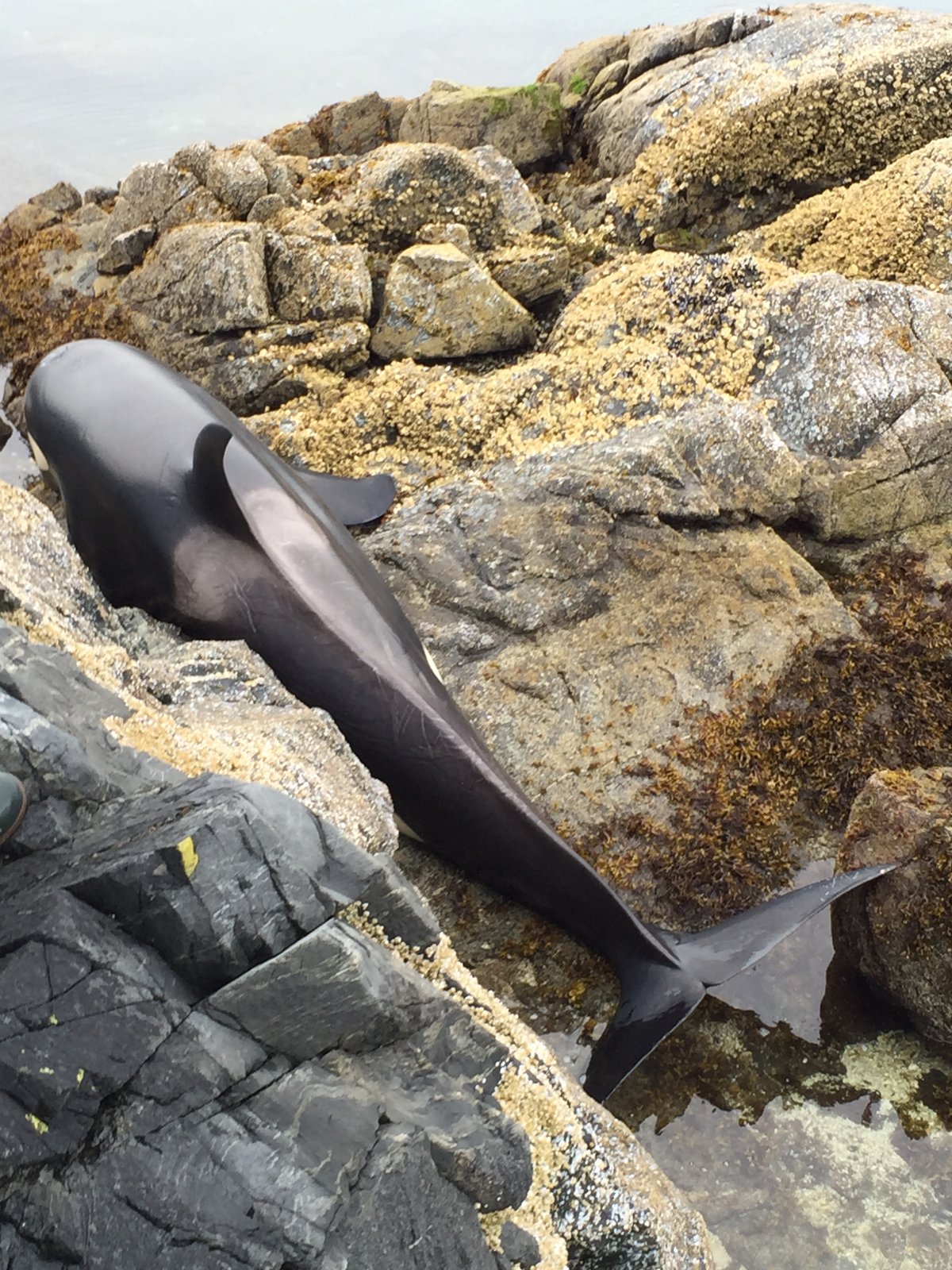


Comments